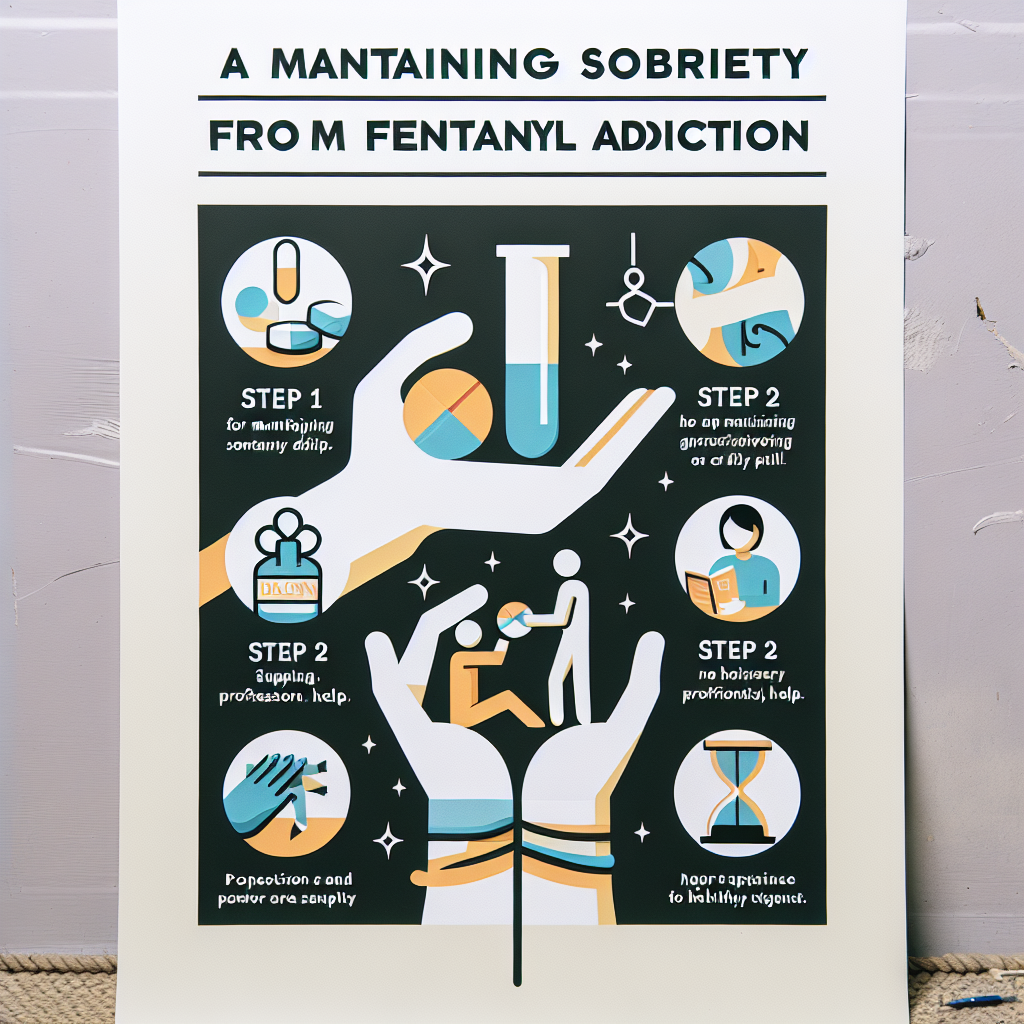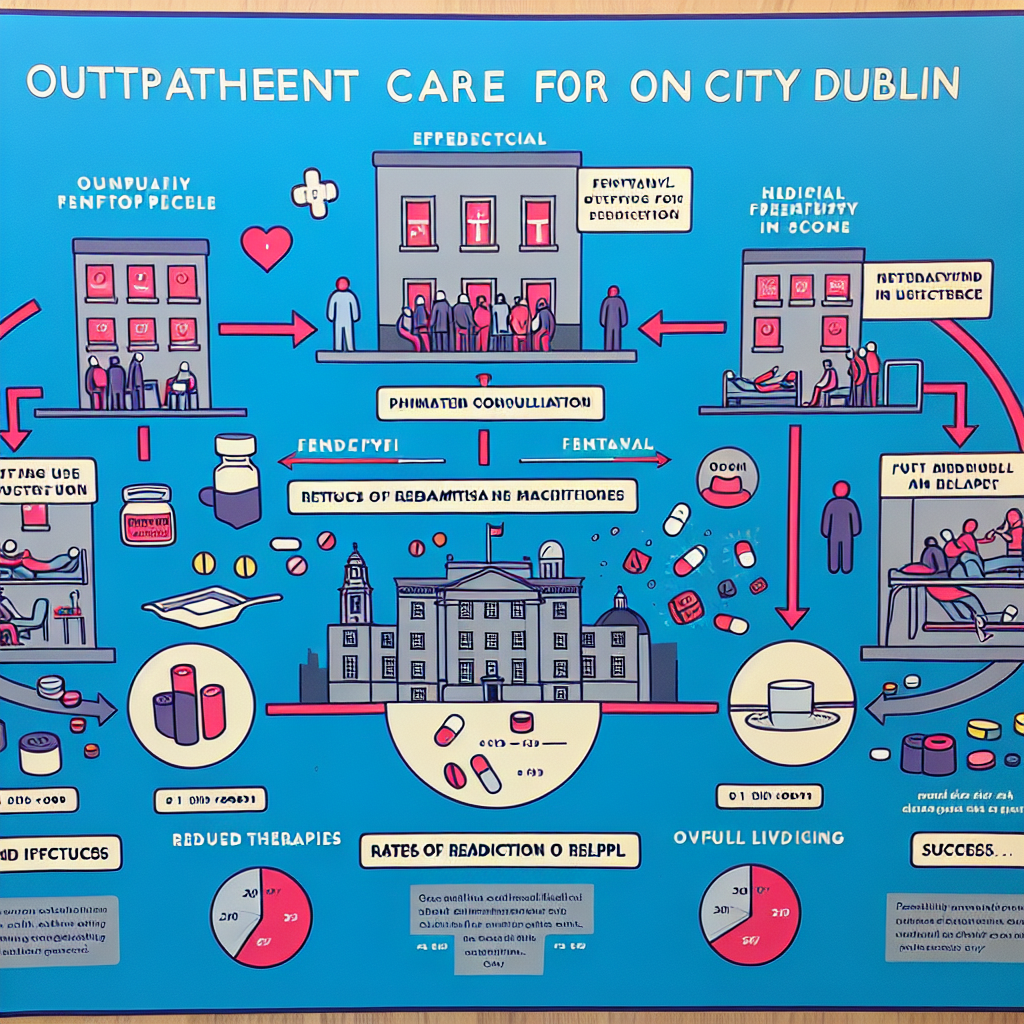-
Table of Contents
“Empower Your Journey: Proven Strategies for Lasting Sobriety from Fentanyl Addiction”
Introduction

Maintaining sobriety from fentanyl addiction is a challenging yet achievable goal that requires a multifaceted approach. Strategies for sustaining long-term recovery involve a combination of medical, psychological, and social interventions. Key components include engaging in comprehensive treatment programs, utilizing medication-assisted treatment (MAT), participating in therapy and counseling, building a strong support network, and adopting healthy lifestyle changes. Additionally, developing coping mechanisms to handle triggers and stress, as well as committing to ongoing aftercare and relapse prevention plans, are crucial for maintaining sobriety. By integrating these strategies, individuals can enhance their resilience and improve their chances of achieving lasting recovery from fentanyl addiction.
Building a Strong Support Network
Maintaining sobriety from fentanyl addiction is a challenging journey that requires a multifaceted approach. One of the most crucial elements in this process is building a strong support network. A robust support system can provide the emotional, psychological, and sometimes even physical assistance necessary to navigate the complexities of recovery. To begin with, it is essential to recognize that recovery is not a solitary endeavor. Surrounding oneself with supportive individuals can significantly enhance the chances of sustained sobriety. Family members, friends, and loved ones often play a pivotal role in this regard. Their understanding, encouragement, and unwavering belief in the individual’s ability to overcome addiction can serve as a powerful motivator. However, it is equally important to set boundaries and ensure that these relationships are healthy and conducive to recovery.
In addition to personal relationships, professional support is indispensable. Engaging with healthcare providers, therapists, and counselors who specialize in addiction can offer invaluable guidance. These professionals can help develop personalized strategies to cope with triggers and stressors that may lead to relapse. Moreover, they can provide a safe space to discuss the emotional and psychological challenges that often accompany the recovery process. Group therapy and support groups, such as Narcotics Anonymous (NA), can also be incredibly beneficial. These groups offer a sense of community and shared experience, which can be comforting and empowering. Hearing the stories of others who have successfully maintained their sobriety can inspire hope and provide practical insights into overcoming common obstacles.
Furthermore, it is essential to cultivate new, healthy relationships that align with a sober lifestyle. This might involve joining clubs, sports teams, or other social groups that do not revolve around substance use. Engaging in activities that promote physical and mental well-being, such as exercise, meditation, or creative pursuits, can also help build a supportive environment. These activities not only provide a positive outlet for stress but also create opportunities to connect with like-minded individuals who can offer encouragement and support.
Another critical aspect of building a strong support network is open communication. Being honest about one’s struggles and progress with trusted individuals can foster a deeper sense of connection and understanding. It is important to remember that asking for help is a sign of strength, not weakness. Reaching out to others when feeling vulnerable or tempted can make a significant difference in maintaining sobriety. Additionally, educating oneself and loved ones about fentanyl addiction and recovery can help demystify the process and reduce stigma. Knowledge empowers individuals to make informed decisions and fosters empathy and support from those around them.
Lastly, it is vital to remain vigilant and proactive in maintaining and nurturing the support network. Relationships require effort and commitment, and it is essential to invest time and energy into building and sustaining these connections. Regularly attending support group meetings, staying in touch with healthcare providers, and continuously seeking out new, positive relationships can help reinforce the foundation of sobriety.
In conclusion, building a strong support network is a cornerstone of maintaining sobriety from fentanyl addiction. By surrounding oneself with supportive individuals, seeking professional guidance, cultivating healthy relationships, practicing open communication, and remaining proactive, individuals can significantly enhance their chances of sustained recovery. The journey may be challenging, but with a robust support system, it is entirely possible to overcome addiction and lead a fulfilling, sober life.
Developing Healthy Coping Mechanisms
Maintaining sobriety from fentanyl addiction is a challenging journey, but developing healthy coping mechanisms can significantly enhance the chances of long-term recovery. The first step in this process is recognizing the importance of emotional regulation. Emotions can be overwhelming, especially for those who have relied on substances like fentanyl to numb their feelings. Learning to identify and express emotions in a healthy way is crucial. Techniques such as mindfulness meditation and deep-breathing exercises can help individuals stay grounded and present, reducing the urge to turn to substances for relief.
In addition to emotional regulation, building a strong support network is essential. Surrounding oneself with positive influences can provide the encouragement and accountability needed to stay on track. This network can include family, friends, support groups, and therapists. Engaging in regular therapy sessions, whether individual or group, offers a safe space to discuss challenges and develop strategies for overcoming them. Support groups, such as Narcotics Anonymous, provide a sense of community and shared experience, reminding individuals that they are not alone in their struggles.
Another vital aspect of developing healthy coping mechanisms is finding alternative activities that bring joy and fulfillment. Hobbies and interests can serve as powerful distractions from cravings and negative thoughts. Whether it’s painting, playing a musical instrument, gardening, or engaging in sports, these activities can provide a sense of purpose and achievement. Exercise, in particular, has been shown to release endorphins, which are natural mood lifters. Regular physical activity can improve mental health, reduce stress, and enhance overall well-being.
Nutrition also plays a significant role in maintaining sobriety. A balanced diet can help stabilize mood and energy levels, making it easier to cope with daily challenges. Consuming a variety of fruits, vegetables, lean proteins, and whole grains can provide the necessary nutrients to support brain function and overall health. Staying hydrated and avoiding excessive caffeine and sugar can also prevent mood swings and irritability.
Furthermore, setting realistic goals and celebrating small victories can boost motivation and self-esteem. Recovery is a gradual process, and it’s important to acknowledge progress, no matter how minor it may seem. Keeping a journal to track achievements and reflect on personal growth can be a powerful tool for maintaining a positive outlook. This practice can also help identify patterns and triggers, allowing individuals to develop strategies to avoid or manage them effectively.
Sleep hygiene is another critical component of developing healthy coping mechanisms. Quality sleep is essential for physical and mental health, and establishing a regular sleep routine can improve mood and cognitive function. Creating a calming bedtime routine, such as reading or taking a warm bath, can signal to the body that it’s time to wind down. Avoiding screens and stimulating activities before bed can also promote better sleep.
Lastly, practicing self-compassion and patience is vital. Recovery from fentanyl addiction is not a linear path, and setbacks are a natural part of the journey. It’s important to treat oneself with kindness and understanding, recognizing that mistakes do not define one’s worth or potential for success. Embracing a growth mindset, where challenges are viewed as opportunities for learning and development, can foster resilience and perseverance.
In conclusion, developing healthy coping mechanisms is a multifaceted approach that involves emotional regulation, building a support network, engaging in fulfilling activities, maintaining proper nutrition, setting realistic goals, prioritizing sleep, and practicing self-compassion. By incorporating these strategies into daily life, individuals can enhance their ability to maintain sobriety from fentanyl addiction and build a foundation for a healthier, more fulfilling future.
Engaging in Regular Physical Activity
Engaging in regular physical activity can be a transformative strategy for maintaining sobriety from fentanyl addiction. The journey to recovery is often fraught with challenges, but incorporating exercise into daily routines can provide a powerful boost to both physical and mental health. Physical activity offers a multitude of benefits that can significantly aid in the recovery process, making it an essential component of a comprehensive sobriety plan.
Firstly, regular exercise helps to repair the body from the damage caused by fentanyl use. Fentanyl, a potent synthetic opioid, can wreak havoc on the body, leading to weakened muscles, reduced stamina, and overall physical deterioration. Engaging in activities such as walking, running, swimming, or strength training can help rebuild muscle mass, improve cardiovascular health, and increase overall energy levels. As the body becomes stronger and more resilient, individuals in recovery often find themselves better equipped to handle the physical demands of daily life without the crutch of substance use.
Moreover, physical activity plays a crucial role in mental health, which is a key factor in maintaining sobriety. Exercise has been shown to release endorphins, the body’s natural mood elevators, which can help alleviate symptoms of depression and anxiety that often accompany withdrawal and recovery. These endorphins create a sense of well-being and happiness, providing a natural high that can replace the artificial and harmful highs once sought through fentanyl. Additionally, regular exercise can improve sleep patterns, reduce stress, and enhance cognitive function, all of which contribute to a more stable and positive mental state.
In addition to the physical and mental health benefits, engaging in regular physical activity can also provide a sense of structure and routine, which is vital for those in recovery. Establishing a consistent exercise schedule can create a sense of normalcy and predictability, helping individuals to stay focused and committed to their sobriety goals. This routine can serve as a healthy distraction from cravings and triggers, reducing the likelihood of relapse. Furthermore, setting and achieving fitness goals can boost self-esteem and confidence, reinforcing the belief that recovery is possible and worth the effort.
Another significant advantage of incorporating physical activity into a sobriety plan is the opportunity for social interaction and support. Joining a gym, participating in group fitness classes, or becoming part of a sports team can provide a sense of community and belonging. These social connections can be incredibly valuable, offering encouragement, accountability, and a network of individuals who share similar goals and challenges. Building these positive relationships can help combat the isolation and loneliness that often accompany addiction and recovery.
It is important to note that while physical activity is a powerful tool for maintaining sobriety, it should be approached with caution and balance. Overexertion or an obsessive focus on exercise can lead to burnout or injury, which can be counterproductive to the recovery process. It is essential to listen to the body, start slowly, and gradually increase the intensity and duration of workouts. Consulting with a healthcare professional or a fitness expert can help create a safe and effective exercise plan tailored to individual needs and capabilities.
In conclusion, engaging in regular physical activity offers a myriad of benefits that can significantly aid in maintaining sobriety from fentanyl addiction. By improving physical health, enhancing mental well-being, providing structure and routine, and fostering social connections, exercise can be a cornerstone of a successful recovery journey. Embracing this strategy with balance and dedication can lead to a healthier, happier, and more fulfilling life free from the grips of addiction.
Utilizing Professional Counseling and Therapy
Utilizing professional counseling and therapy can be a cornerstone in the journey to maintain sobriety from fentanyl addiction. This powerful opioid, known for its high potential for addiction and overdose, requires a multifaceted approach to recovery. Professional counseling and therapy offer structured support, helping individuals navigate the complex emotional and psychological challenges that accompany addiction recovery.
One of the primary benefits of professional counseling is the creation of a safe, non-judgmental space where individuals can openly discuss their struggles. This environment fosters trust and allows for honest communication, which is crucial for addressing the underlying issues that may have contributed to the addiction. Through various therapeutic techniques, counselors can help individuals identify triggers, develop coping strategies, and build resilience. Cognitive-behavioral therapy (CBT), for instance, is particularly effective in helping individuals recognize and change negative thought patterns and behaviors associated with substance use.
Moreover, therapy provides a structured framework for setting and achieving recovery goals. Counselors work collaboratively with individuals to establish realistic, attainable objectives, which can be incredibly motivating. These goals often include not only maintaining sobriety but also improving overall mental health, rebuilding relationships, and enhancing life skills. By breaking down the recovery process into manageable steps, therapy can make the daunting task of overcoming addiction feel more achievable.
In addition to individual counseling, group therapy can be an invaluable resource. Sharing experiences with others who are facing similar challenges can reduce feelings of isolation and provide a sense of community. Group therapy sessions offer a platform for mutual support, where individuals can learn from each other’s experiences and offer encouragement. This collective approach can reinforce the commitment to sobriety and provide practical insights into managing everyday struggles.
Family therapy is another critical component of the recovery process. Addiction often affects not just the individual but also their loved ones. Family therapy aims to repair and strengthen these relationships, fostering a supportive home environment that is conducive to recovery. By involving family members in the therapeutic process, individuals can rebuild trust and improve communication, which can be pivotal in maintaining long-term sobriety.
Furthermore, professional counseling and therapy can address co-occurring mental health disorders, which are common among individuals with substance use disorders. Conditions such as depression, anxiety, and post-traumatic stress disorder (PTSD) can complicate the recovery process if left untreated. Integrated treatment approaches that address both addiction and mental health issues simultaneously can lead to better outcomes. Therapists can provide specialized interventions tailored to the unique needs of each individual, ensuring comprehensive care.
It is also important to recognize that recovery is an ongoing process, and continued engagement in therapy can provide sustained support. Regular counseling sessions can help individuals stay accountable, monitor progress, and adjust strategies as needed. This ongoing relationship with a therapist can be a source of stability and encouragement, helping individuals navigate the inevitable ups and downs of the recovery journey.
In conclusion, professional counseling and therapy play a vital role in maintaining sobriety from fentanyl addiction. By offering a safe space for open communication, setting achievable goals, providing mutual support through group therapy, involving family members, addressing co-occurring mental health disorders, and offering ongoing support, these therapeutic interventions can empower individuals to reclaim their lives. The journey to sobriety is challenging, but with the right support and strategies, it is entirely possible to achieve lasting recovery and build a fulfilling, drug-free life.
Q&A
1. **Question:** What role does therapy play in maintaining sobriety from fentanyl addiction?
**Answer:** Therapy, including cognitive-behavioral therapy (CBT) and contingency management, helps individuals develop coping strategies, address underlying issues, and build a support system to maintain sobriety.
2. **Question:** How can support groups aid in maintaining sobriety from fentanyl addiction?
**Answer:** Support groups like Narcotics Anonymous provide a community of individuals with similar experiences, offering mutual support, accountability, and shared strategies for staying sober.
3. **Question:** Why is it important to avoid triggers in maintaining sobriety from fentanyl addiction?
**Answer:** Avoiding triggers, such as certain people, places, or situations associated with drug use, helps prevent relapse by reducing the temptation and stress that can lead to cravings.
4. **Question:** What role does a healthy lifestyle play in maintaining sobriety from fentanyl addiction?
**Answer:** A healthy lifestyle, including regular exercise, a balanced diet, and adequate sleep, supports physical and mental well-being, reduces stress, and enhances the ability to cope with challenges without resorting to substance use.
Conclusion
Maintaining sobriety from fentanyl addiction requires a multifaceted approach that includes medical treatment, psychological support, and lifestyle changes. Key strategies include engaging in a comprehensive treatment program that may involve medication-assisted treatment (MAT) with drugs like methadone or buprenorphine, participating in individual and group therapy to address underlying psychological issues, and building a strong support network through family, friends, and support groups such as Narcotics Anonymous. Additionally, developing healthy coping mechanisms, avoiding triggers, and making positive lifestyle changes such as regular exercise, proper nutrition, and mindfulness practices are crucial. Continuous monitoring and follow-up care are essential to prevent relapse and ensure long-term recovery.



